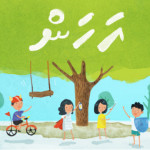The United Nations Children’s Fund (UNICEF) has praised developments in the reporting of child abuse cases in the Maldives, but is concerned at the challenges posed to “overwhelmed” social services.
Mohamed Naeem, a UNICEF Child Protection Officer based in the Maldives, told Minivan News that although he believed developments in the area of child protection were proving “quite promising”, greater collaboration with members of the public, NGOs and government authorities remained key challenges ahead.
The claims were made as a number of stakeholders from across the Maldivian child protection system met at Bandos Island Resort and Spa last week to try and outline a programme on how to best cooperate on improving the welfare of children in the country, particularly in far flung island communities.
In a speech delivered at the Conference on Child Protection, Ron Pouwels, UNICEF Regional Advisor for Child Protection told the audience assembled at Bandos that outlining a strategy against violence towards children on a national level represented important societal developments.
“Across countries, many challenges remain and violence against children is still often accepted as a lawful practice in the education system, as a form of sentencing by judicial bodies and as a disciplinary measure in care institutions,” he said. “The gap between law and practice also remains wide and challenging. Protective legislation needs to be enforced, permeate the work of institutions and shape the training and ethical standards of professionals.”
Figures taken from an unpublished UNICEF report conducted back in 2008 to study violence against Maldivian children reported that abuse of minors was found to exist across wide sections of Maldives society, both at home and in school – as well as the wider community.
The report claimed that eight percent of student respondents had apparently been hit by a teacher, children with disabilities were found to come under higher risk of receiving physical punishment and girls faced a high risk of being sexually abused, particularly in the capital of Male’.
The findings also reported that eleven percent of boys in the study and 20 percent of girls were believed to have been sexually abused at least once in their life.
Looking ahead
Mohamed Naeem said at present there were no comparative figures on how the child abuse situation had changed in the country since 2008, though he believed there had been improvements in the reporting and monitoring of child abuse in its different forms at the very least.
“Cases of reporting child abuse is up immensely, however this has brought additional challenges that need to be faced,” he said. “With a growing number of cases being reported, social services are being overwhelmed and need to be strengthened.”
Naeem said that a key consideration in bolstering the country’s child protection would be in the provision of more support from local communities and government agencies to social services.
The UNICEF Child Protection Officer claimed that existing initiatives such as Child Protection Committees made up of public citizens who liaised with social services from islands where they did not have a presence were strong examples of the type of collaboration the organization hoped to see.
Naeem claimed that the Child Protection Committees model could be adopted by NGOs and government agencies to maintain a nationwide network focusing on child protection – an area UNICEF has said it will be actively supporting.
In light of this month’s local council elections, Naeem added that decentralised councils and governance were a further positive opportunity to install monitoring and protection systems to benefit young people.
“There are a lot of challenges that would remain in terms of getting such systems up and goin,g” he said. “However, the situation in terms of preventing child abuse is quite different since 2001, I think it’s quite promising.”
Beyond general optimism in terms of developments in national child protection, Naeem said that another key challenge remained for UNICEF and authorities in trying to identify children who were seen as being most vulnerable to possible abuse in society.
The Child Protection Officer claimed that although actions plan were being drawn up, difficulties remained in pinpointing vulnerable groups.
“This could involve cases where children are away from their families for education reasons, have disabilities, or come from single parent families or environments of drug abuse,” he said.
The Conference on Child Protection was held as UNICEF and its partners announced the allocation of US$1.72 million to promote children’s rights in the Maldives as part of a country-wide programme outlining development between 2011 and 2015.
In a statement, UNICEF said that activities identified in the 2011 plan include improving the legislative framework for child rights, strengthening the evidence base for policy planning, and improve capacity of government to deliver improved quality health care and water and sanitation services.
Support will also be provided to ensure enhanced national capacity to deliver inclusive and child friendly education, and to scale up services to protect the most vulnerable children and women from violence. UNICEF will also partner with civil society organizations and the media to enhance their capacity for active monitoring and reporting on children’s issues.
 (0)Dislikes
(0)Dislikes (0)
(0)





and no one comments...because there are no pointless discussions of religious belief or silly sensationalizing of regular social processes.
Somebody had better start paying attention to the rhetoric coming out of the UN, because they are NO friend of families OR children-
Tuesday February 3, 2009
United Nations Population Fund Leader Says Family Breakdown is a Triumph for Human Rights
By Matthew Cullinan Hoffman
http://www.lifesitenews.com/ldn/2009/feb/09020312.html
See WHO these people really are in the Communist Manifesto of 1848-
http://revolution2.us/content/docs/history/communist/manifesto.htm#family
Leonard Henderson, co-founder
American Family Rights
http://familyrights.us
"Until Every Child Comes Home"©
"The Voice of America's Families"©
or no one just cares cos it's child abuse..